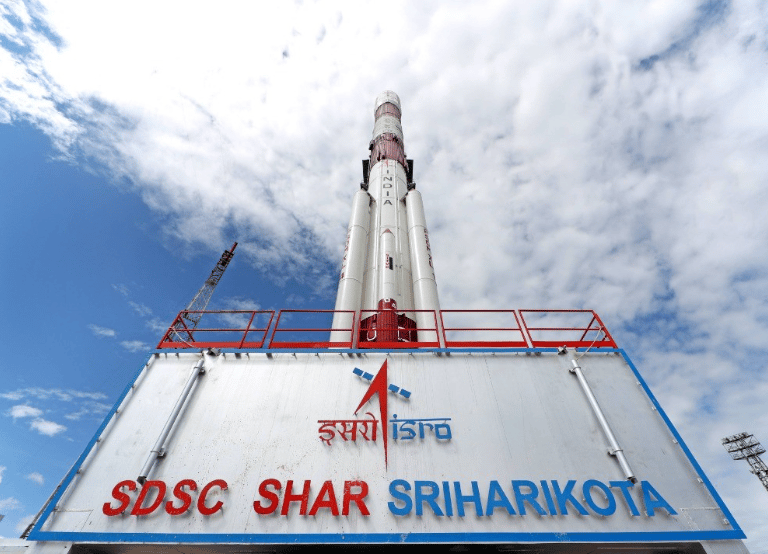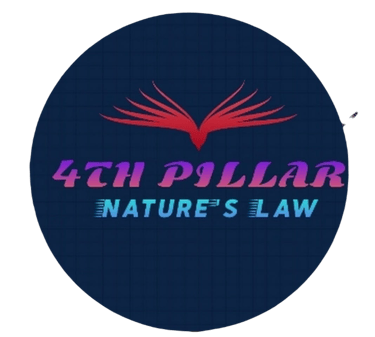
क्या हार में क्या जीत में ! किंचित नहीं भयभीत मैं
संधर्ष पथ पर जो मिले यह भी सही वह भी सही।
वरदान नहीं मानूंगा, हार नहीं मानूंगा |
ISRO
ISRO is responsible for the development and implementation of space exploration and satellite missions in India.
R&D INSTITUTE
6/12/20242 min read


The Indian Space Research Organisation (ISRO) is the space agency of the Government of India, headquartered in Bengaluru. Founded in 1969.ISRO is responsible for the development and implementation of space exploration and satellite missions in India. The organization has gained international recognition for its successful and cost-effective space missions.
Aspects of ISRO
Mission and Objectives:
To harness space technology for national development while pursuing space science research and planetary exploration.
To develop satellite launch vehicles and manage satellite communication and remote sensing programs.
Major Programs and Achievements:
Satellite Launch Vehicles:
Satellite Missions:
Mars Orbiter Mission (Mangalyaan):
Chandrayaan Missions:
Gaganyaan:
Infrastructure and Facilities:
Satish Dhawan Space Centre (SDSC): Main launch center located in Sriharikota.
Vikram Sarabhai Space Centre (VSSC): Main center for launch vehicle development.
Liquid Propulsion Systems Centre (LPSC): Focuses on the development of liquid propulsion systems for launch vehicles and spacecraft.
ISRO Satellite Centre (ISAC): Involved in the design, development, and integration of satellites.
International Collaborations:
Collaboration with various international space agencies like NASA, ESA, Roscosmos, and JAXA.
Participation in global satellite launches, joint missions, and sharing satellite data for research and development.
Future Missions and Goals:
Aditya-L1: India’s first solar mission aimed at studying the Sun.
Chandrayaan-3: Follow-up to Chandrayaan-2 with the goal of achieving a successful soft landing on the Moon.
Space Station: Plans to build and launch an Indian space station.
Expanding the use of space technology: For socio-economic benefits, including agriculture, disaster management, and climate monitoring.
Academic Courses
Under the DOS, the Indian Institute of space technology IIST, the Indian Institute of Remote Sensing (IIRS) and few other centers offer academic courses for Indian students. Courses cover graduate, postgraduate and doctoral degrees.
Details of academic courses conducted at various centers are provided below.
Indian Institute of Remote Sensing (IIRS) at Dehradun
IIRS is a premier institute with the objective of capacity building in Remote Sensing and Geo-informatics and their applications through education and training programmes at postgraduate level. The Institute also hosts and provides support to the Centre for Space Science and Technology Education in Asia and the Pacific (CSSTE-AP), affiliated to the United Nations. The training and education programmes of the Institute are designed to meet the requirements of various target / user groups, i.e., for professionals at working, middle and supervisory levels, fresh graduates, researchers, academia, and decision makers. The duration of courses ranges from one week to two years. The education programmes conducted by the Institute include M.Tech., M.Sc., PG-Diploma.
Visit IIRS for details.
Academic Collaboration
DA-IICT, Gandhinagar, Anand Agriculture University (AAU), and Indian Institute of Remote Sensing (IIRS), ISRO, Dehradun are jointly offering a two-year “M.Sc. program in Agriculture Analytics.” DA-IICT, AAU and IIRS are the premier universities/ Institutes in ICT, Agriculture, and Space Technology domain, respectively. This is a multidisciplinary program of agriculture and data analytics. The program is aimed at nurturing students, with insights and the know-how to take the sector into the future. The course will introduce students to concepts of data analytics, viz. descriptive, predictive and prescriptive, in agriculture and will empower the students to eliminate speculative farming and usher in the age of predictive agriculture.
Courses for International students
Indian Institute of Remote Sensing (IIRS) is a premier institute with the primary aim to build capacity in Remote Sensing and Geo-informatics and their applications through education and training programmes at Post Graduate level. The Institute also hosts and provides support to the Centre for Space Science and Technology Education in Asia and The Pacific (CSSTE-AP), affiliated to the United Nations, to conduct Remote Sensing & GIS training and education programmes at Post Graduate level. The training and education programmes of the Institute are designed to meet the requirements of various target/user groups, i.e., for professionals at working, middle and supervisory levels, fresh graduates, researchers, academia and decision makers. The duration of courses ranges from one-week to two-years.
Indian Institute of Space Science and Technology (IIST), Thiruvananthapuram
IIST, Asia’s first Space University, was established at Thiruvananthapuram in 2007 with the objective of offering high quality education in space science and technology to meet the demands of Indian Space Programme. The institute offers undergraduate, postgraduate, doctoral and post-doctoral programmes in broad areas of space science, technology and applications.
ISRO encourages research activities at Academia. Interested institutions can be engaged with ISRO centers for carrying out R&D activities in the ISRO focussed areas. The following kinds of engagement is possible for carrying out joint research.
Sponsored Research: ISRO publishes focussed areas for research in the space domain and seek proposals from qualified academic institutions for joint research. PI will be identified by the institution, whereas Co-PI will be joining from ISRO for carrying out the projects. The project including timeline and budget will be mutually agreed upon and reviewed thoroughly by Joint Management Committees / technical committees with in ISRO centres, before the project is approved. The approved amount shall be released in phases subject to meeting the conditions of the MOU.
ISRO cells: ISRO also established cells at various premier engineering institutions for carrying out Joint research. Space Technology Cells (STC) are instituted at IITs’ and IISc for advanced research with the respective institution. Space Technology Innovation Centre(STIC) at NITs in various regions to focus on entrepreneurial oriented projects and Regional Academia Centres for Space (RAC-S) are instituted at NITs in the different regions to encourage the collaborative projects in space in that region. In additional various centre of excellences, Innovation centres and space science centres are also instituted to promote the research in space.
Recognising the need for a broader academic interface with institutions across the country, a series of capacity building initiatives have been taken up to further strengthen the involvement of academia for ISRO programmes. These initiatives include:
Centre for Nano Science & Engineering (CeNSE)
FellowshipsHome / Programmes / FellowshipsFollowing pages guide the visitor to various fellowship (JRF, SRF, PDF or research associate) offered by various Centres, units or autonomous bodies in DOS.
Physical Research Laboratory (PRL) invites applications for Junior Research Fellowships (JRFs) from highly motivated and dynamic candidates to pursue research in the science domains of Astronomy & Astrophysics, Atomic, Molecular and Optical Physics, Geosciences and Theoretical Physics. JRFs at PRL will be encouraged to register for a Ph.D. degree at an Institute/University with which PRL has an MoU. PRL also offers Post-Doctoral Fellowship (PDF) in research areas of the Laboratory is offered for a maximum period of two years. The extension to 2nd year is subject to the satisfactory annual progress review. Candidates who have submitted their Ph.D. thesis or those who are about to submit their Ph.D. thesis can apply.
Space Physics Laboratory (SPL) has a broad spectrum of opportunities for doing front ranking research in the areas of Atmospheric, Space and Planetary Sciences. These opportunities are offered as following fellowships. For the latest advertisement for JRF position, click here. The Research Associate Positions are always OPEN at SPL and the candidates can apply any time of the year. In addition to the above, SPL hosts INSPIRE faculty and NPDF candidates to carry out their research activities. SPL has a visiting scientist (VS) program, which either operates through ADCOS VS program, or directly by SPL. Any enquiry for these positions can be directed to the Director SPL.
Indian Institute of Space Technology (IIST) invites applications from highly motivated candidates for Post Doctoral Fellowship Programme in various frontier research areas of Aerospace Engineering, Avionics, Chemistry and Physics.
National Atmospheric Research Laboratory (NARL) offers Post Doctoral Fellow (PDF)/Research Associate (RA). Follow this link for details: NARL Work with NARL >> Vacancies
URSC offers fellowships that will be announced here.
Space Applications Centre (SAC) invites applications for Research Fellowships, Research Associateships and Research Scientists for specific projects or Education/Research Schemes. The recipients of these Fellowships/ Associateships /Scientists are expected to conduct research work whole time under the Principal Investigator of the SAC/ISRO sponsored project. In special cases of individual Research Fellows/Associates, the candidates could be governed by the conditions of Research work as specified by the projects/ programmes/ schemes for which the Fellowships have been offered by ISRO. The detailed information about various fellowship/Associateships are provided at SAC Vyom website click here. In addition to the above, SAC also hosts INSPIRE/CSIR JRF, DST Women Scientist, UGC NET JRF candidates from various universities/institutes to carry out their research activities at SAC.
SAC also collaborate with various universities/institutes for doing research under different umbrella like SAMUDRA, NISAR, AVIRIS, SRISTHI, NavIC with respect to specific projects. Under this fund is also provided by SAC to carry out research work and recruiting JRF/SRF.
For the latest advertisement for Research Fellowships, Research Associateships and Research Scientists position, click here
Impact and Legacy
ISRO has played a pivotal role in advancing India's space capabilities and establishing the country as a significant player in global space exploration. Its emphasis on cost-effective missions and indigenous technology development has garnered international acclaim and contributed to a broad range of scientific and practical applications benefiting India and the world.
